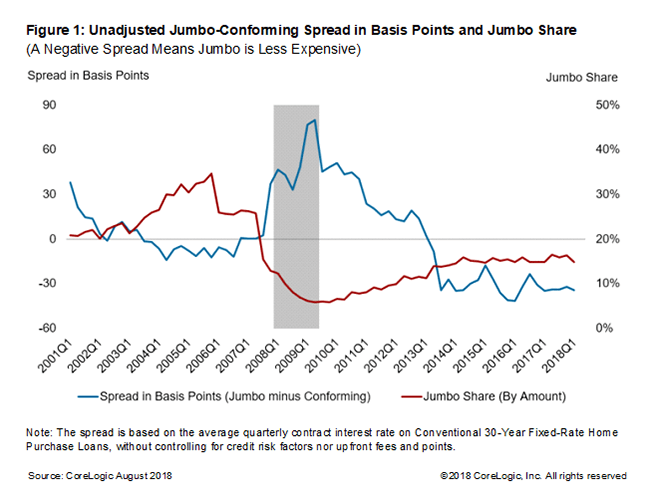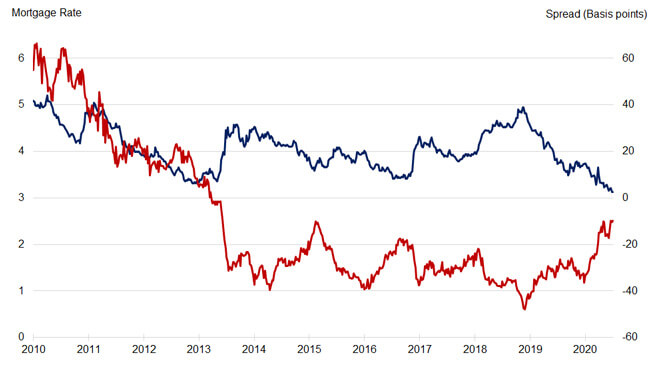Jumbo Loan: Financing Solutions for Homes Above Conforming Boundaries
Jumbo Loan: Financing Solutions for Homes Above Conforming Boundaries
Blog Article
Navigating the Jumbo Financing Landscape: Vital Insights for First-Time Homebuyers
Navigating the intricacies of jumbo lendings presents an one-of-a-kind collection of challenges for new homebuyers, especially in a progressing real estate market. Understanding the essential qualification demands and possible benefits, along with the disadvantages, is critical for making informed choices. Furthermore, creating a strong monetary approach can substantially enhance your leads.
Comprehending Jumbo Financings

Because jumbo financings are not backed by government-sponsored entities, they bring various underwriting requirements and need even more detailed monetary documentation. This difference can cause higher rate of interest contrasted to standard lendings, given the enhanced threat to lending institutions. Nonetheless, jumbo lendings additionally use unique advantages, such as the ability to finance higher-value buildings and potentially extra versatile terms.
First-time buyers ought to likewise know that safeguarding a jumbo finance commonly necessitates a larger down payment, usually varying from 10% to 20%. Additionally, consumers are usually anticipated to demonstrate strong creditworthiness and a stable earnings to qualify. When exploring big finance alternatives in their pursuit of homeownership., recognizing these subtleties can empower first-time homebuyers to make enlightened decisions.
Qualification Needs
Securing a jumbo funding requires conference specific eligibility requirements that vary dramatically from those of standard financings. Unlike conventional car loans, which are typically backed by government-sponsored entities, big loans are not insured or assured, leading to more stringent criteria.
One key requirement is a greater credit scores rating. Lenders normally expect a minimum score of 700, although some may allow reduced scores under certain conditions (jumbo loan). In addition, consumers have to show a robust financial profile, that includes a low debt-to-income (DTI) ratio, typically no more than 43%. This guarantees that borrowers can handle their monthly settlements together with various other financial responsibilities.
Additionally, the majority of loan providers require substantial documentation, including evidence of earnings, property statements, and tax returns for the past two years. A significant deposit is also crucial; while standard loans might enable down repayments as reduced as 3%, jumbo financings usually necessitate a minimum of 20%, depending on the financing and the loan provider amount.

Benefits of Jumbo Fundings
For numerous newbie homebuyers, big financings use distinctive advantages that can assist in the journey toward homeownership. Among the key benefits is the capacity to finance residential or commercial properties that surpass the adhering loan restrictions set by government-sponsored entities. This flexibility allows purchasers to access a broader array of high-value residential or commercial properties in competitive property markets.
In addition, jumbo loans commonly feature attractive rate of interest that can be less than those of typical lendings, specifically for borrowers with solid debt accounts. This can lead to considerable cost savings over the life of the loan, making homeownership a lot more affordable. Big loans normally permit for greater financing quantities without the need for personal home loan insurance policy (PMI), which can even more minimize monthly repayments and total costs.

Potential Drawbacks
Lots of potential property buyers might discover that jumbo fundings come with considerable drawbacks that necessitate mindful factor to consider. One of the main issues is address the strict qualification criteria. Unlike adhering look here lendings, jumbo fundings usually need greater debt scores, frequently going beyond 700, and substantial earnings documents, making them much less obtainable for some debtors.
Additionally, jumbo car loans usually feature greater rate of interest contrasted to conventional lendings, which can lead to increased regular monthly payments and overall loaning costs. This costs might be particularly burdensome for newbie buyers that are already browsing the economic intricacies of buying a home.
One more significant disadvantage is the larger down payment need. Many loan providers anticipate a minimum down repayment of 20% or more, which can posture a challenge for customers with restricted financial savings. The lack of federal government support for jumbo financings leads to less positive terms and conditions, increasing the risk for loan providers and, consequently, the borrowing costs for home owners.
Finally, market fluctuations can considerably affect the resale value of high-end residential properties financed with big fundings, including a component of economic changability that novice homebuyers may locate complicated.
Tips for First-Time Homebuyers
Navigating the intricacies of the homebuying process can be frustrating for first-time buyers, specifically when considering jumbo car loans (jumbo loan). To streamline this journey, adhering to some crucial techniques can make a considerable difference
First, educate on your own on jumbo loans and their details requirements. Recognize the different borrowing criteria, consisting of credit report, debt-to-income ratios, and down payment expectations. Typically, a minimal credit history of 700 and a down payment of a minimum of 20% are essential for approval.
2nd, involve with an educated home loan professional. They can provide understandings customized to your economic situation and help you browse the complexities of the big funding landscape.
Third, take into consideration pre-approval to enhance your investing in setting. A pre-approval letter signals to sellers that you are a significant buyer, which can be advantageous in affordable markets.
Last but not least, do not overlook the relevance of budgeting. Consider all great post to read prices connected with homeownership, including residential or commercial property taxes, upkeep, and property owners' insurance. By adhering to these tips, first-time buyers can approach the big financing process with greater confidence and quality, improving their chances of successful homeownership.
Final Thought
Finally, navigating the big loan landscape requires an extensive understanding of qualification standards, benefits, and potential disadvantages. Newbie buyers can boost their opportunities of success by keeping a strong credit history, handling their debt-to-income ratio, and getting ready for larger down repayments. Engaging with well-informed home mortgage professionals and acquiring pre-approval can further enhance settings in open markets. Eventually, detailed preparation and education and learning concerning jumbo loans can bring about more educated decision-making in the homebuying procedure.
When browsing the intricacies of the housing market, understanding big car loans is essential for first-time buyers intending for properties that exceed standard car loan limits. Jumbo loans are non-conforming loans that usually go beyond the adhering financing limit established by the Federal Real Estate Finance Firm (FHFA)Additionally, big financings usually come with attractive interest rates that can be lower than those of typical lendings, specifically for borrowers with strong credit scores profiles. Big loans normally enable for greater financing quantities without the demand for private home mortgage insurance coverage (PMI), which can even more decrease month-to-month settlements and overall costs.
Unlike adhering financings, big fundings normally require higher credit rating scores, usually going beyond 700, and significant earnings paperwork, making them much less available for some customers.
Report this page